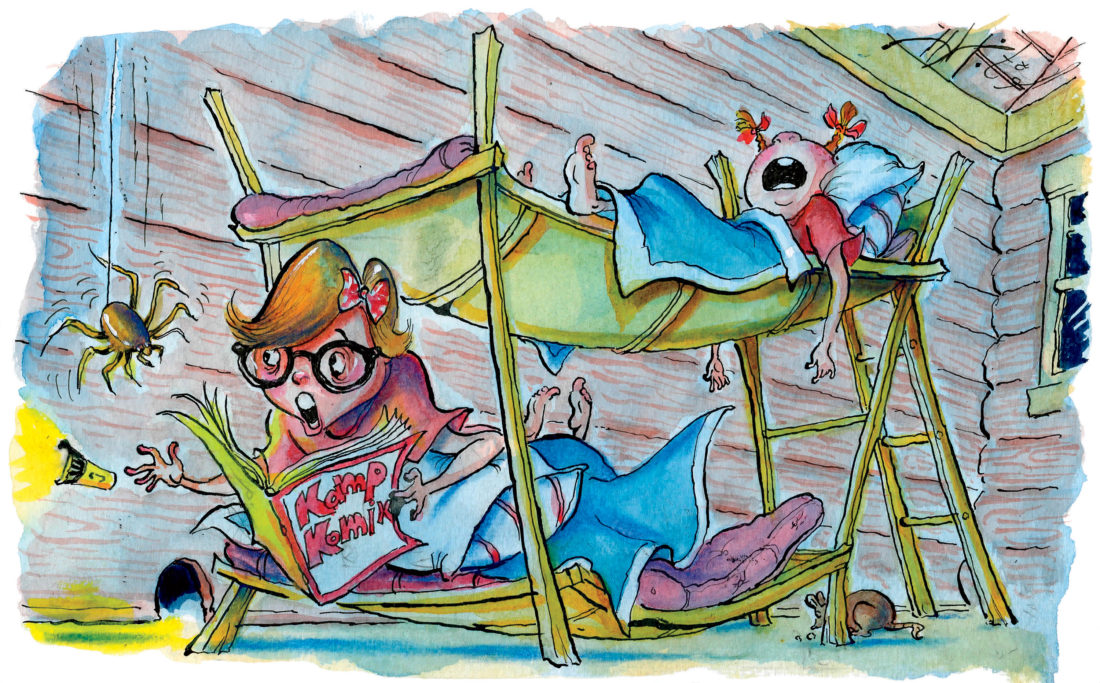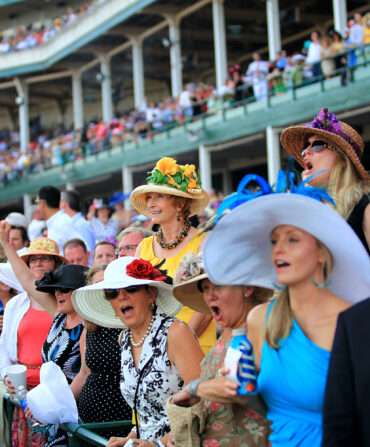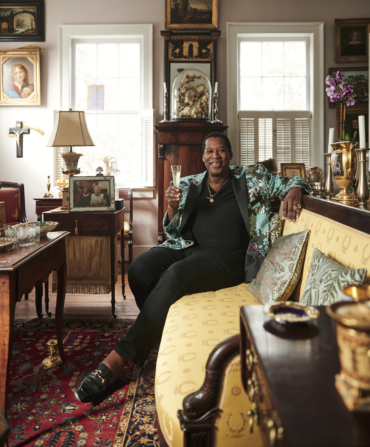The summer after my eighth-grade year, the son of close family friends—on whom I’d had an enormous crush forever—got married. He wore seersucker suits and played the guitar, and, the year before, when he had told me he would wait for me, I’d believed him. Upon the announcement of the engagement, I locked myself in my room for three days with a scratchy LP of Rachmaninoff’s Piano Concerto no. 2 (this was far too serious a business for the Carpenters or even Joni Mitchell, both of whom had hits that year). Still bereft, but by now also thoroughly bored, I hatched a plan. I was going to look so good at his wedding I would make that man sorry.
This proved to be easier for a thirteen-year-old than one might think. I had a summer job at our town’s ultrachic department store, Hafter-Blum, fetching coffee and lunch and putting price tags on the frocks. I learned the beauty of a bias cut and the difference between crepe and crepe de chine, and kept an eye out for my wedding showstopper. By late June, when the big day arrived, I’d saved enough of my wages to buy a backless, knife-pleated Cacharel cotton dress with a tiny flower print and a lowish square-cut neckline. I’d heard my mother ordering shoes from Neiman Marcus over the phone so many times I knew the name of her salesman, who sent purchases overnight via the Continental Trailways from Dallas (our early-1970s version of FedEx). He dispatched a pair of creamy snakeskin Charles Jourdans with a three-inch stacked heel I wore well into my twenties. My grandmother, my partner in all things inappropriately sophisticated, sent me diamond earrings and a perfect wide-brimmed straw hat. Needless to say, the groom didn’t notice, and my mother was suitably aghast. No matter. I’d learned a powerful lesson in the healing power of glamour, especially when applied to wounded pride.
Alas, mine was a short-lived transformation. The next morning, instead of a glass slipper, I was given a new pair of Keds and a seat on a Blue Bird bus bound for a Baptist Bible camp in Mentone, Alabama. It was a tragic turn of events that had been engineered by my mother a few months earlier when she announced that she and my father had decided I’d become entirely too cynical for my age. This particular camp, she said, was just the answer; it had done wonders for so-and-so. She knew I would love it. Spoiler alert: I did not love it.
It is worth pointing out that the best antidote for cynicism might not be a decidedly unpicturesque place in the piney woods run by two sanctimonious old ladies who banned comic books on Sundays and served food so bad it required lashings of nasty treacle syrup from ever-present pitchers (thus dashing my hopes that at least I would get really, really skinny). Every morning at dawn we were dragged off to a formation of damp and freezing-cold rocks to pray, and every evening in our cabins we were made to say—out loud—all the things we were thankful for. I hate getting up early, I don’t like a forced march, and it’s nobody’s beeswax what I’m thankful for. Plus, I could never think of a thing to say except the fact that I would one day be getting the hell out of there, which I thought wise to keep to myself.
To be fair, my mother had adored camp. She went to Green Cove and Rockbrook, and she was so convinced the sailing skills she’d learned at Camp Nagawicka had stood the test of time, she once rented us a sailboat at a Disney resort, and we had to be towed back to the dock. All the girls I grew up with couldn’t wait to head off to Kahdalea and Illahee every summer, and even my cousin Frances, who had good reason to be a cynic, looked forward to her six weeks away. (But then she went to a cool camp, Merrie-Woode, where she got to make an actual gold ring instead of a plastic lanyard, a hideous neckpiece I could never master the art of.) I get that I was the odd girl out, but I didn’t find it remotely strange that I preferred hanging out in an air-conditioned store surrounded by beautiful clothes and cool adults rather than a hot cabin with grubby children I didn’t know. My dear friend Libby Page loved Rockbrook so much that she and her daughter still attend annual reunions where I swear they sing camp songs. I cannot imagine voluntarily listening to “Kumbaya”; camp even put me off pine trees.
Also, by the time I was packed off to Alabama, it wasn’t as if I hadn’t already had the experience. I’d attended a two-week Girl Scout camp, Cedar Point, in Grenada, Mississippi, for two summers and had gone for a month to a place called Tumbling Waters somewhere in Georgia. So I knew well that camp was full of stuff that made me profoundly uncomfortable: spiders; bunk beds; cold, dark lakes (I prefer my water clear and moving); sleeping on the ground; bows and arrows; girls en masse. Plus, seriously bad things happened while I was gone. My beloved black-and-white cocker spaniel, Buddy (born a week before I was), got run over in our driveway by the cable man, and my riding teacher sold Mary Poppins, the gentle white pony I’d ridden since I was four.
Despite all that, I thought I’d been a pretty good sport about those initial forays until I read the letters home my mother recently unearthed and sent me in a box. In one, from Cedar Point, I reported that my cabinmates were so lame we’d “made a complete flop” of skit night, and that it was so “unbearably” hot I was bound to have “a heat stroke.” Further, I hugely resented having to take “three Girl Scout bites” out of everything including our morning grits, which I despise (unless of course they are mixed with good things like sharp cheddar and jalapeños rather than the camp’s cheap margarine). From Tumbling Waters, I wrote that the girls were “mostly Yankees, snobs, and racists,” and that the much-touted biscuits “are not even as good as the ones Mama gets at Sunflower.” The light in my bottom bunk was so bad I could barely read or write and the tap water so cold it was painful to wash my face. You get the idea—the box is a big one.
Still, there had been a few high points. At Cedar Point, I won a talent show by singing “Raindrops Keep Fallin’ on My Head” while wearing a trench coat and holding a red flowered umbrella. This begs the question of why I’d thought to include in my trunk an actual Burberry trench, a gift, naturally, from my grandmother. Also, my fervent desire notwithstanding, I am not, in fact, a very good singer. At Tumbling Waters, I made friends with my very cool counselor, Penny from North Carolina, whom I was later allowed to visit at Stephens College, and the pottery bowl I made in Arts & Crafts still sits on my father’s dresser.
There were no such high points at the Bible camp, just countless moments all but engineered to foster, rather than fight, cynicism. Before a field trip to Six Flags Over Georgia, for example, the ladies called a meeting to declare that since we all came from families of different means, it had been decided that we could take with us no more than $7.35 in spending money, no matter how much we might have stashed in our cabins. How they arrived at that particular number (“in the interest of fairness”) still boggles the mind. Also, our means were hardly that diverse since tuition was, even then, up in the thousands. (Note to my parents: You were robbed.) I myself had stashed a hundred bucks under my (very thin) mattress—I’d been a working girl, after all—and I determined to spend every cent of it after this ludicrous decree. I bought popcorn and cotton candy and fudge for pretty much everyone except the super-righteous chicks I knew to be tattlers. I bought my parents tacky key chains, my little brothers T-shirts and toys and hats I had to hide in my clothes. When we returned and were made to pledge (“before God”) that we’d abided by the rule, I didn’t bat an eye. I knew He’d understand.
In fairly short order I decided to forgive my mother. For one thing, there was a copy of James Taylor’s brand-new Walking Man LP on my bed when I got home, and the subject of camp was never, ever brought up again. Also, what I think she finally figured out is that I was never really much of a cynic, just a fairly observant kid healthily attuned to the foibles of human nature. At heart, I’ve always been a romantic. It’s just that to this day I find very little romance in shower shoes, outdoor latrines, and 6:00 a.m. wake-up bells. Fortunately, I had visions of strappy sandals and a swirling, knife-pleated skirt to see me through. The dress still hangs in my closet.
Want more Julia Reed? Her book South Toward Home is a collection of both rollicking and warm stories about the highs and lows of Southern life.








